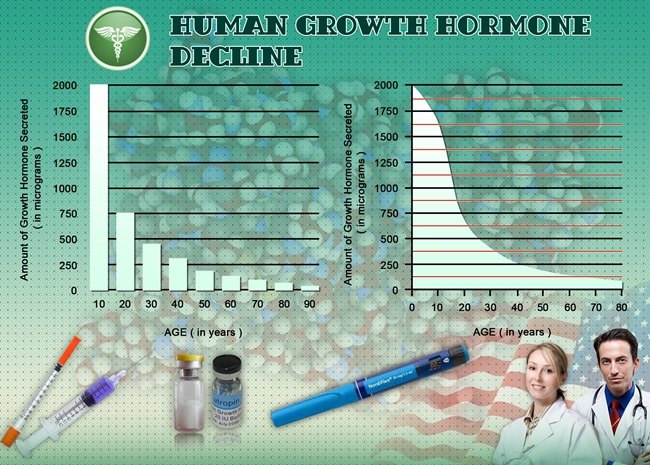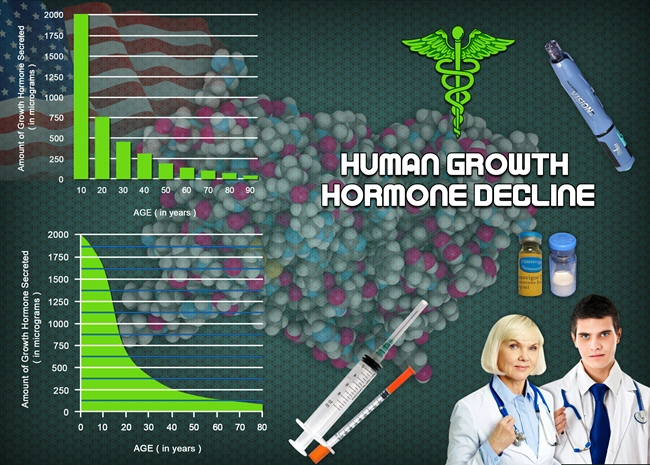
Introduction to Penile Sensitivity Disorders
Penile sensitivity disorders encompass a range of conditions that affect the sensory capabilities of the penis. These disorders can significantly impact the quality of life for American males, influencing sexual satisfaction and overall well-being. Understanding the causes, diagnosis, and treatment options is crucial for managing these conditions effectively.
Causes of Penile Sensitivity Disorders
Penile sensitivity disorders can arise from various underlying factors. One common cause is nerve damage, which may result from surgeries such as prostatectomy or from chronic conditions like diabetes. Diabetes can lead to peripheral neuropathy, which affects the nerves in the penis and reduces sensitivity. Additionally, traumatic injuries to the genital area can cause nerve damage and subsequent sensitivity issues.
Another contributing factor is the use of certain medications. Antidepressants, particularly selective serotonin reuptake inhibitors (SSRIs), are known to potentially decrease penile sensitivity as a side effect. Furthermore, lifestyle factors such as smoking and excessive alcohol consumption can impair nerve function and blood flow, exacerbating sensitivity problems.
Psychological factors also play a significant role. Stress, anxiety, and depression can alter the perception of penile sensitivity. These mental health issues can create a feedback loop where reduced sensitivity leads to increased anxiety, further diminishing the sensory experience.
Diagnosis of Penile Sensitivity Disorders
Diagnosing penile sensitivity disorders involves a comprehensive approach. Initially, a thorough medical history and physical examination are essential. Healthcare providers will inquire about symptoms, medical history, and any recent changes in health or medication.
Specialized tests may be employed to assess nerve function and blood flow. Biothesiometry, for instance, measures the threshold of vibration perception, which can indicate nerve damage. Doppler ultrasound can evaluate blood flow to the penis, helping to rule out vascular causes of sensitivity issues.
Psychological assessments may also be necessary to identify any mental health factors contributing to the disorder. Questionnaires and interviews with a mental health professional can provide insights into the psychological aspects of the condition.
Treatment Options for Penile Sensitivity Disorders
Treatment for penile sensitivity disorders is tailored to the underlying cause. For nerve damage related to diabetes, managing blood sugar levels is crucial. Medications such as phosphodiesterase type 5 inhibitors (e.g., Viagra) may improve blood flow and enhance sensitivity.
In cases where medications are the culprit, adjusting or changing the medication under medical supervision can alleviate symptoms. For instance, switching to a different class of antidepressants might mitigate the side effects affecting penile sensitivity.
Lifestyle modifications are also beneficial. Quitting smoking and reducing alcohol intake can improve nerve function and blood flow. Regular exercise and a balanced diet contribute to overall health and may enhance penile sensitivity.
Psychological interventions, such as cognitive-behavioral therapy (CBT), can address anxiety and depression, improving the perception of penile sensitivity. Couples therapy may also be beneficial, as it can help partners understand and support each other through the treatment process.
In some instances, more advanced treatments may be necessary. Nerve-sparing surgeries can be considered for those with severe nerve damage. Additionally, penile rehabilitation programs, which may include vacuum erection devices and penile injections, can help restore sensitivity and function.
Conclusion
Penile sensitivity disorders present a complex challenge for American males, but with a thorough understanding of the causes, accurate diagnosis, and appropriate treatment, these conditions can be managed effectively. By addressing both the physical and psychological aspects of the disorder, individuals can improve their quality of life and sexual health. As research continues to advance, new treatments and therapies will further enhance the management of penile sensitivity disorders, offering hope and improved outcomes for affected individuals.
Contact Us Today For A Free Consultation
Dear Patient,
Once you have completing the above contact form, for security purposes and confirmation, please confirm your information by calling us.
Please call now: 1-800-380-5339.
Welcoming You To Our Clinic, Professor Tom Henderson.

- Managing Penile Skin Conditions: Symptoms, Treatments, and Prevention Strategies [Last Updated On: February 21st, 2025] [Originally Added On: February 21st, 2025]
- Understanding the Psychological Toll of Penile Health Issues: A Comprehensive Overview for American Males [Last Updated On: March 1st, 2025] [Originally Added On: February 28th, 2025]
- Advancements in Penile Prostheses: Enhancing ED Treatment and Patient Satisfaction [Last Updated On: March 17th, 2025] [Originally Added On: March 17th, 2025]
- Penile Trauma: Emergency Care, Long-Term Management, and Latest Advances in Penis Science [Last Updated On: March 18th, 2025] [Originally Added On: March 18th, 2025]
- Testosterone's Crucial Role in Penile Health and Function for American Males [Last Updated On: March 19th, 2025] [Originally Added On: March 19th, 2025]
- Penile Enlargement: Safety, Efficacy, and Methods for American Males [Last Updated On: March 19th, 2025] [Originally Added On: March 19th, 2025]
- Penile Nerve Blocks: Enhancing Urological Surgery and Pain Management for American Males [Last Updated On: March 19th, 2025] [Originally Added On: March 19th, 2025]
- Optimal Penile Hygiene: Practices for Health and Well-being in American Males [Last Updated On: March 19th, 2025] [Originally Added On: March 19th, 2025]
- Lifestyle Factors Impacting Penile Health: Diet, Exercise, and More for American Males [Last Updated On: March 20th, 2025] [Originally Added On: March 20th, 2025]
- Understanding and Managing Penile Ulcers in American Males: Causes, Diagnosis, and Treatment [Last Updated On: March 20th, 2025] [Originally Added On: March 20th, 2025]
- Obesity's Impact on Penile Function: Vascular, Hormonal, and Psychological Effects [Last Updated On: March 21st, 2025] [Originally Added On: March 21st, 2025]
- Spinal Cord Injuries and Penile Function: Impacts and Management for American Males [Last Updated On: March 21st, 2025] [Originally Added On: March 21st, 2025]
- Chemotherapy's Impact on Penile Health: Effects, Management, and Long-term Considerations [Last Updated On: March 22nd, 2025] [Originally Added On: March 22nd, 2025]
- Medications and Penile Function: Impacts on American Males' Health [Last Updated On: March 22nd, 2025] [Originally Added On: March 22nd, 2025]
- Genetics of Penile Development: Insights and Advances for American Males [Last Updated On: March 22nd, 2025] [Originally Added On: March 22nd, 2025]
- Penile Vascular Health: Understanding, Preventing, and Treating Vascular-Related ED [Last Updated On: March 22nd, 2025] [Originally Added On: March 22nd, 2025]
- Penile Biopsy: Essential Diagnostic Tool for Urological Health in American Males [Last Updated On: March 22nd, 2025] [Originally Added On: March 22nd, 2025]
- Penile Skin Grafts: Indications, Procedures, and Outcomes for American Males [Last Updated On: March 22nd, 2025] [Originally Added On: March 22nd, 2025]
- Dietary Impact on Penile Health: Antioxidants, Omega-3s, and Nitrates [Last Updated On: March 23rd, 2025] [Originally Added On: March 23rd, 2025]
- Managing Penile Allergies: Symptoms, Diagnosis, and Effective Strategies for American Males [Last Updated On: March 23rd, 2025] [Originally Added On: March 23rd, 2025]
- Penile Prosthetics: Effective Solution for Severe Erectile Dysfunction in American Males [Last Updated On: March 23rd, 2025] [Originally Added On: March 23rd, 2025]
- Penile Ultrasound: Diagnosing Sexual Dysfunction in American Males [Last Updated On: March 24th, 2025] [Originally Added On: March 24th, 2025]
- Penile Girth's Impact on Sexual Satisfaction: Insights for American Males [Last Updated On: March 24th, 2025] [Originally Added On: March 24th, 2025]
- Understanding Penile Numbness: Causes, Diagnosis, and Treatment Strategies [Last Updated On: March 24th, 2025] [Originally Added On: March 24th, 2025]
- Chronic Diseases and Penile Health: Impacts and Management for American Males [Last Updated On: March 24th, 2025] [Originally Added On: March 24th, 2025]
- Penile Warts: Causes, Symptoms, Treatment, and Prevention for American Males [Last Updated On: March 24th, 2025] [Originally Added On: March 24th, 2025]
- Penile MRI: Advancing Diagnosis and Treatment in Men's Health [Last Updated On: March 24th, 2025] [Originally Added On: March 24th, 2025]
- Understanding Penile Rash: Types, Causes, and Effective Treatments for American Men [Last Updated On: March 25th, 2025] [Originally Added On: March 25th, 2025]
- Understanding Penile Discharge: Causes, Symptoms, and Treatment for American Males [Last Updated On: March 25th, 2025] [Originally Added On: March 25th, 2025]
- Penile Reconstruction: Techniques, Outcomes, and Psychological Impact on American Males [Last Updated On: March 25th, 2025] [Originally Added On: March 25th, 2025]
- Penile Vein Anatomy, Function, and Common Disorders: A Comprehensive Overview [Last Updated On: March 25th, 2025] [Originally Added On: March 25th, 2025]
- Understanding and Managing Penile Sensory Neuropathy in American Males [Last Updated On: March 25th, 2025] [Originally Added On: March 25th, 2025]
- Hormonal Imbalances and Their Impact on Penile Health in American Males [Last Updated On: March 25th, 2025] [Originally Added On: March 25th, 2025]
- Understanding Penile Discoloration: Causes, Symptoms, and Treatment Options for American Males [Last Updated On: March 25th, 2025] [Originally Added On: March 25th, 2025]
- Neurological Disorders' Impact on Penile Function: Insights and Management Strategies [Last Updated On: March 26th, 2025] [Originally Added On: March 26th, 2025]
- Understanding Penile Lesions: Types, Causes, and Medical Interventions for American Males [Last Updated On: March 26th, 2025] [Originally Added On: March 26th, 2025]
- Penile Lymphatic System: Functions, Disorders, and Health Management [Last Updated On: March 26th, 2025] [Originally Added On: March 26th, 2025]
- Understanding and Managing Penile Pain: Causes, Diagnosis, and Treatment Strategies [Last Updated On: March 26th, 2025] [Originally Added On: March 26th, 2025]
- Penile Blood Tests: A Vital Tool for Diagnosing Systemic Health Issues in Men [Last Updated On: March 26th, 2025] [Originally Added On: March 26th, 2025]
- Penile Piercings: Health Risks, Types, and Medical Advice for American Males [Last Updated On: March 26th, 2025] [Originally Added On: March 26th, 2025]
- Penile Arteries and Erection Health: A Comprehensive Guide for American Males [Last Updated On: March 26th, 2025] [Originally Added On: March 26th, 2025]
- Understanding Penile Swelling: Causes, Diagnosis, and Management for American Males [Last Updated On: March 27th, 2025] [Originally Added On: March 27th, 2025]
- Exploring Penile Sensitivity: Impact on Sexual Health and Function in American Males [Last Updated On: March 27th, 2025] [Originally Added On: March 27th, 2025]
- Understanding Penile Bleeding: Causes, Symptoms, and Emergency Care for American Males [Last Updated On: March 27th, 2025] [Originally Added On: March 27th, 2025]
- Penile Nerve Anatomy: Impact on Sexual Health and Function in American Men [Last Updated On: March 27th, 2025] [Originally Added On: March 27th, 2025]
- Penile Injuries: Types, Impact on Sexual Function, and Importance of Timely Treatment [Last Updated On: March 27th, 2025] [Originally Added On: March 27th, 2025]
- Radiation Therapy's Impact on Penile Health: Effects, Management, and Future Research [Last Updated On: March 27th, 2025] [Originally Added On: March 27th, 2025]
- Understanding Penile Itching: Causes, Symptoms, and Effective Treatments [Last Updated On: March 28th, 2025] [Originally Added On: March 28th, 2025]
- Understanding Penile Lumps: Types, Causes, and Management for American Males [Last Updated On: March 29th, 2025] [Originally Added On: March 29th, 2025]
- Penile Health and Fertility: Insights and Management for American Males [Last Updated On: March 29th, 2025] [Originally Added On: March 29th, 2025]
- Penile Sores: Causes, Symptoms, and Medical Interventions for American Males [Last Updated On: March 30th, 2025] [Originally Added On: March 30th, 2025]
- Understanding Penile Edema: Causes, Diagnosis, and Treatment Strategies for American Males [Last Updated On: March 30th, 2025] [Originally Added On: March 30th, 2025]
- Penile Health and Overall Well-being: Insights and Strategies for American Males [Last Updated On: March 30th, 2025] [Originally Added On: March 30th, 2025]
- Understanding and Treating Penile Redness: Causes, Symptoms, and Effective Solutions [Last Updated On: April 1st, 2025] [Originally Added On: April 1st, 2025]
- Understanding Penile Dermatitis: Symptoms, Causes, and Treatment for American Males [Last Updated On: April 2nd, 2025] [Originally Added On: April 2nd, 2025]
- Penile Health and Mental Well-being: Insights for American Males [Last Updated On: April 4th, 2025] [Originally Added On: April 4th, 2025]
- Penile Health and Partner Satisfaction: Insights for American Males [Last Updated On: April 5th, 2025] [Originally Added On: April 5th, 2025]
- Understanding Penile Blisters: Causes, Symptoms, and Treatment Options for Men [Last Updated On: April 7th, 2025] [Originally Added On: April 7th, 2025]
- Causes, Diagnosis, and Management of Penile Burning in American Males [Last Updated On: April 8th, 2025] [Originally Added On: April 8th, 2025]
- Penile Health and STI Prevention: A Comprehensive Guide for American Males [Last Updated On: April 8th, 2025] [Originally Added On: April 8th, 2025]
- Understanding Penile and Prostate Health: A Comprehensive Guide for American Males [Last Updated On: April 8th, 2025] [Originally Added On: April 8th, 2025]
- Penile Health Impact on Urinary Function: Insights for American Males [Last Updated On: April 8th, 2025] [Originally Added On: April 8th, 2025]
- Understanding and Managing Penile Dryness: Causes, Symptoms, and Effective Treatments [Last Updated On: April 9th, 2025] [Originally Added On: April 9th, 2025]
- Understanding Penile Foreskin Health: Causes, Symptoms, and Care [Last Updated On: April 9th, 2025] [Originally Added On: April 9th, 2025]
- Penile Health as Cardiovascular Indicator: Study Insights for American Males [Last Updated On: April 11th, 2025] [Originally Added On: April 11th, 2025]
- Penile Health: Impact on Reproductive Wellness and Integrated Care Strategies [Last Updated On: April 12th, 2025] [Originally Added On: April 12th, 2025]
- Managing Penile Odor: Causes, Symptoms, and Effective Treatment Strategies for Men [Last Updated On: April 12th, 2025] [Originally Added On: April 12th, 2025]
- Penile Health and Hormonal Balance: A Comprehensive Guide for American Men [Last Updated On: April 13th, 2025] [Originally Added On: April 13th, 2025]









